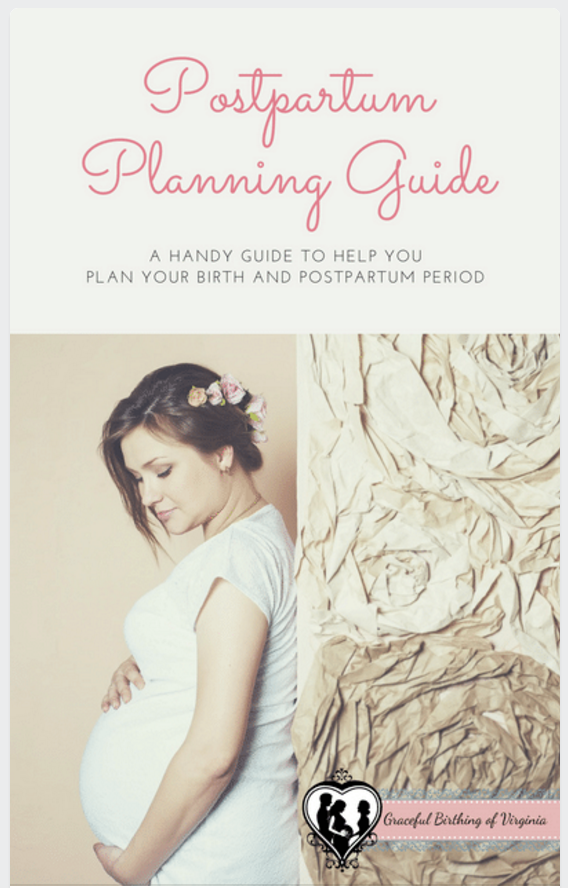Let me begin by stating I am not a medical professional by any means. I have no medical training…only the self-study prompted by my family’s needs and my doula work. What I share here is based solely on my own extensive research as a desperate mom seeking help for her son. I have consulted with endocrinologists, pediatricians, a nurse practitioner, a developmental pediatrician, and, finally, an osteopath in the hopes of treating my son, Benjamin, and his hypothyroidism.
I really debated back and forth with myself as to whether I had what it takes to write this blog post. Did I really have the audacity to put myself out there as an “expert” on such a complicated topic? Quite frankly my initial answer was a resounding “NO!”
After all, I’m not a medical professional…I’m just a mom, like so many of you, and I don’t feel qualified to cover such an exhaustive and complex issue like thyroid malfunction. Furthermore, there is so much information available out there if someone were inclined to research the matter it seems rather unnecessary to clutter cyberspace with yet another piece of data on the subject.
But, I finally got over myself and decided to jump right into the subject simply because there could be others out there, just like me, who don’t realize they could be looking in the wrong places for help, or, in some cases, don’t even understand what it is they’re looking for. Or, perhaps, there are some who don’t even realize there may be a problem that needs to be addressed.
Bear with me while I give you a bit of pertinent background information. I am approaching the age of 50 and am the biological mom of 13 children, one of whom has Down Syndrome with it accompanying diagnosis of hypothyroidism. As we looked into a more natural approach to managing his hypothyroidism we, unexpectedly, stumbled upon the answers to a hormonal problem that had been plaguing me since my early teens. I really didn’t have a name for this ailment but was unmistakably familiar with it’s telltale “MO,” that typically began with lengthy periods of sleep deprivation. These bouts of sleep challenges could last for weeks and always resulted in crying spells, illogical thoughts and behavior, despondency, panic attacks, and severe depression sometimes requiring anti-depressants. After about a month the symptoms would gradually disappear and life returned back to normal until the next episode. There would usually be a repeat of the above scenario about 2 –3 years later with the occurrences becoming more and more frequent as the years progressed.

The integrative doctor that was treating my son’s hypothyroidism requested we take Benjamin’s basal body temperature everyday for 6 weeks and document them. We
discovered his temps consistently ranged from 95 degrees to 97 degrees, never approaching the norm of 98 degree, which was our first indication that his current treatment of Levothyroxine, the standard prescription for hypothyroidism, and the most commonly prescribed pharmaceutical drug in the nation, was not effectively managing his condition. Up until this time Benjamin had been taking Levothyroxine for over a year and a half. When reading up on hypothyroidism I immediately realized he and I shared many of the same symptoms which can include hair loss, fatigue, extreme cold sensitivity, dry skin, weight issues (slow weight gain or weight loss), poor bowel function, fatigue/sluggishness, eyebrow loss, irregular cycles, miscarriage, and sleep disturbances. Did someone say SLEEP DISTURBANCES? I had seven of the symptoms on a consistent basis and about 12 periodic manifestations of hypothyroidism, which included having had 4 miscarriages. Similarly, Benjamin was still exhibiting seven of the above markers even while undergoing treatment for his hypothyroid symptoms.
I immediately began taking my basal body temperatures and they resembled that of my son’s. I began seeing an integrative doctor who requested lab work to confirm what she suspected the problem to be…hypothyroidism. These labs included a comprehensive thyroid panel (TSH, T3, T4, Reverse T3, free T3, and the two thyroid anti-bodies, thyroglobulin and thyroid peroxidase), CBC, progesterone, testosterone, estradiol, cortisol, DHEA, pregnenolone, Vit. D3, iodine, and ferritin (iron). In the meantime, based on an extensive amount of research I had embarked upon, I decided to begin my own regimen of bio-identical progesterone cream applied nightly to see if that would improve my sleep…I was now desperately trying to treat myself to combat sleep deprivation that was now going on a year long. Unfortunately, after 5 months of progesterone therapy, I was still not sleeping more than 4 – 5 hours a night.
Upon receiving the results of my lab work my doctor was able to confirm that I had Hashimoto’s Disease with its accompanying condition of hypothyroidism. THANKFULLY, I now had a diagnosis for a problem that had been plaguing me for over 30 years! I was put on Naturethroid, which is a more natural approach to hypothyroidism than its counterpart, Levothyroxine, which proved to be unsuccessful in treating my son’s symptoms. The reason we chose to go with a natural alternative, in this case, a pork derived thyroid product, was because research indicates our bodies have the receptor sites in place to more readily assimilate and absorb the natural product as opposed to other synthetic ones. That is not to say that it is better for everyone but, in our cases, it proved to be best. After about 2 months on Naturethroid I began to sleep a full 8 hours with no sleep aids whatsoever. In my son’s case, he began to gain weight, sleep better, his eyebrows filled in, and he seemed more energetic.
So, if you take anything at all away from this writing, this is what I want it to be:
# 1 ~ If you are dealing with any type of recurring sleep disturbances or challenges you would do well to have your hormone levels checked. And I don’t mean just the female hormones…I mean all of the ones listed above.
#2 ~ If you’ve been dealing with any of the above symptoms for a prolonged period of time I would also consider getting the above labs completed ASAP.
#3 ~ Realize this! So many family doctors, endocrinologists (hormone specialists), and pediatricians are uninformed regarding alternative practices should traditional thyroid treatment be ineffective in managing thyroid symptoms. Also, AND THIS IS IMPORTANT, they may be unaware that what is normal for one patient may not be normal for the next. In other words, if your hormonal levels are within normal range, they may still be wreaking havoc because they are not normal for you. Your lab numbers may indicate that you’re within normal ranges but your symptoms may indicate that something is definitely awry. If you’re symptoms are being dismissed based solely on what your numbers say, you may need to see a different doctor.
#4 ~ If you suspect you are dealing with hormonal imbalances, and your symptoms are not being managed adequately, I would highly suggest you consider seeing an integrative doctor, a functional medicine doctor, an anti-aging doctor, an osteopath, or an alternative doctor familiar with treating thyroid disorders.
#5 ~ For anyone dealing with estrogen dominance and taking supplemental progesterone, your attempts to balance your female hormones will be thwarted if your thyroid function is compromised. Your thyroid is responsible for so many basic metabolic and hormonal functions and, if it is failing, it is impossible for it to be operating at optimal capacity. Furthermore, proper thyroid activity is responsible for the production of many of our body’s other critical hormone be that the creation of insulin, female hormones, growth hormones, or adrenalin…every cell in our body depends upon thyroid hormones of their metabolism.
#6 ~ Thyroid disfunction tends to run in families so, if you have immediate family members with a thyroid issue, it may be worthwhile to have your levels monitored. Two of my sisters struggle with thyroid disorders along with myself and Benjamin. My daughter is next on my list to get labs for as I strongly suspect she may have some hormonal disorder.
#7 ~ You absolutely MUST have your two thyroid antibodies tested to get a clearer picture of thyroid function. In my case, in light of what appeared to be normal thyroid lab work, the elevated levels of my thyroid antibodies are what indicated a problem to my doctor. Although she was poised to act based solely on my aggravated symptoms she was glad to have the antibody numbers to confirm her suspicions. So, if you’re not getting your antibodies tested you are only seeing half the picture…you need the whole picture in order to properly assess the situation.
Finally, again, please remember what I am telling you is the result of years of my own personal and professional research. I have no medical training but have come to the following conclusions based on much study and the knowledgeable assistance of my doctor. Please thoroughly inform yourself and find a health practitioner to come along side you to support you on your journey to good health. Thanks so much for reading.
For further study consider consulting the following books:






